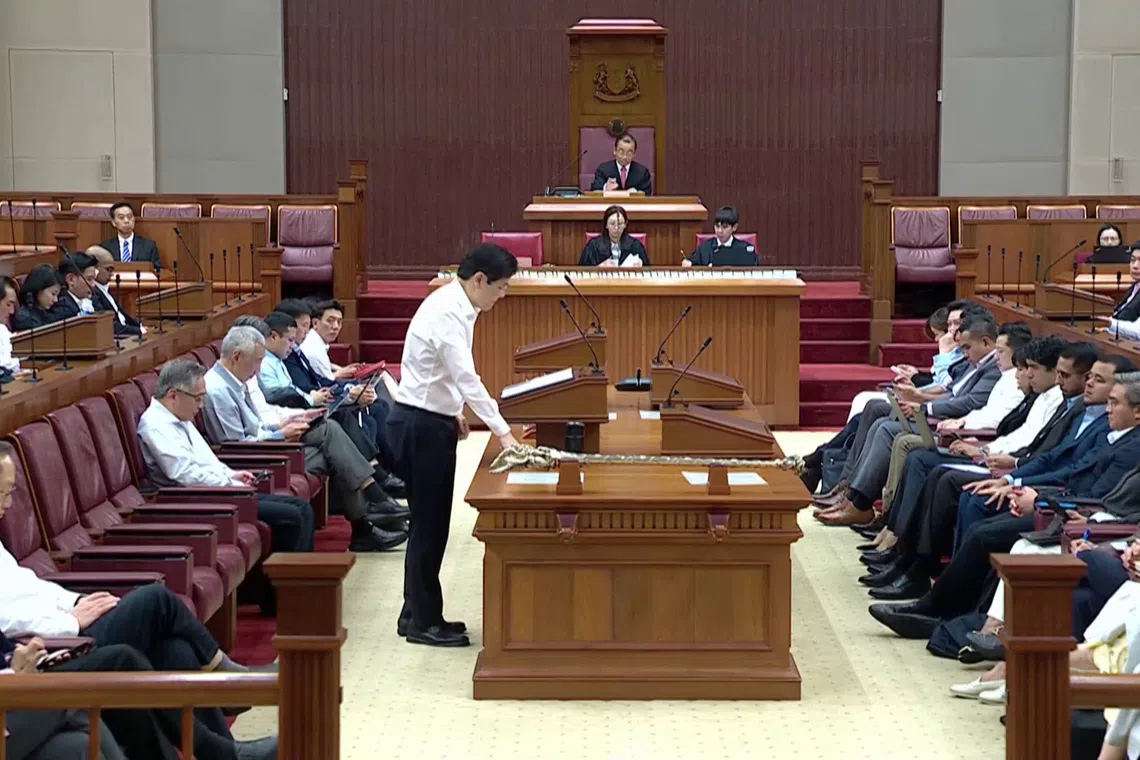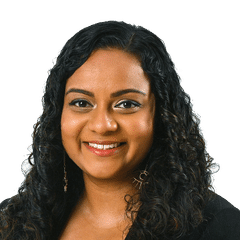Guard against temptation to play race, religion card in future elections: PM Wong
Sign up now: Get ST's newsletters delivered to your inbox

PM Lawrence Wong called for constructive politics, conducted with seriousness and integrity.
PHOTO: MDDI
Follow topic:
SINGAPORE - The temptation to play the race and religion card to draw voters will grow as elections become more tightly contested, and Singapore must find ways to guard against this, said Prime Minister Lawrence Wong.
He called for constructive politics, conducted with seriousness and integrity. He also urged MPs to reaffirm their commitment to serve all Singaporeans, and forswear the use of racial and religious appeals in elections.
In his speech on day three of the debate on the President’s Address, PM Wong said there was a “close call” in the recent general election, where external parties “sought to exploit our differences to divide and weaken us”.
“In one instance, they attacked the credibility of certain candidates because these candidates allegedly failed to advocate the rights of a particular religious community,” he said.
“In another instance, they praised a candidate for arguing against the separation of religion and politics.”
Facebook posts made by two Malaysian politicians and an Australian citizen, who was a former Internal Security Act detainee, had urged voters to cast ballots along religious lines. The Singapore Government directed Meta to block access to these posts
PM Wong noted that there were Singaporeans who encouraged certain groups to vote along racial and religious lines – narratives that were both seen online and heard on the ground.
“They said – vote for this candidate because he or she is a better representative of your race or religion. Or they compared two candidates, and said – vote this person, because he or she has been a more vocal champion for your race or religion.”
Singaporean self-styled religious teacher Noor Deros had put up posts with a list of demands and claimed to have met Workers’ Party Malay candidates. He also urged his followers to vote for specific WP candidates. The WP subsequently said no promises were made to Mr Noor, nor anyone else, in exchange for political support.
PM Wong called a press conference during the hustings to urge Singaporeans to firmly reject identity politics, and remind political parties to keep race and religion out of the political space.
“I spoke out then – not as a party leader, but as PM – to make clear that race and religion must never be weaponised in our politics,” he told the House.
Thankfully, many Singaporeans rejected the calls to vote along racial and religious lines, and supported the candidate they felt was best for the country, PM Wong said.
Had the election outcome rewarded those who pushed for people to vote along those lines, “it would have caused a serious fissure in Singapore society”, he noted.
Other racial and religious groups would have mobilised to protect their own interests in future elections, he said.
“This would have jeopardised the harmonious, multiracial and multi-religious society that took us 60 years to build.”
PM Wong brought up a line in the national pledge – “one united people, regardless of race, language or religion” – and said it is the foundation of Singapore’s independence, as well as the bedrock of its nationhood.
“Our unity and the trust we have with one another depends on how we conduct our politics – the way we debate, disagree and decide as a nation,” he said, adding that is what constructive politics in Singapore must be about.
“Every election is a new test, and we must take nothing for granted,” said PM Wong, noting that society is maturing and Singapore’s politics is evolving.
He welcomed the opposition presence in Parliament. Voters returned the PAP to power at the May 3 polls
Both sides have a duty to serve Singaporeans faithfully, PM Wong said.
The PAP does not assume it is automatically entitled to govern, and must earn the right to lead by working hard and improving the lives of Singaporeans, he added.
Doing well in one election does not guarantee success in the next, he said.
“In this term of government, I fully expect the WP to keep us on our toes – raising questions, scrutinising our policies and holding us accountable,” he said, adding that the opposition party will play this role vigorously.
Over time, the WP will try to grow its presence in Parliament, as any political party would, PM Wong said.
“One day, it will want to take over from the PAP as the ruling party, even if it may not say so openly now. This is the nature of political competition.”
But ultimately, the PAP, WP or any other political party are all servants of the people, he said. “The final word rests with them.”
Singaporeans are discerning voters, he said, and they will decide which parties deserve their trust, both in government and in opposition.
There will be consequences if any party falls short of the public’s high expectation and standards, he noted, as he laid out his hopes for Singapore’s political evolution.
“So let us all conduct our politics – with seriousness, with integrity, and with a deep sense of responsibility for the longer-term interests of our nation,” he said.
PM Wong also reiterated the call to build a “we first” society, which he had first raised during the National Day Rally
Such a society comprises a people that considers others and not just themselves, he said, adding that such a spirit of solidarity dates back to Singapore’s forefathers of different origins, languages and religions who “came together to forge One Singapore”.
He noted that “we first” does not mean suppressing the “me”.
“It means the ‘me’ can only thrive when the ‘we’ is strong,” PM Wong said.
“So we need to embrace our individuality, and help everyone be the best possible versions of themselves. At the same time, we have to look out for one another and lift each other up,” he added.
“Only then can we be greater than the sum of our parts.”


